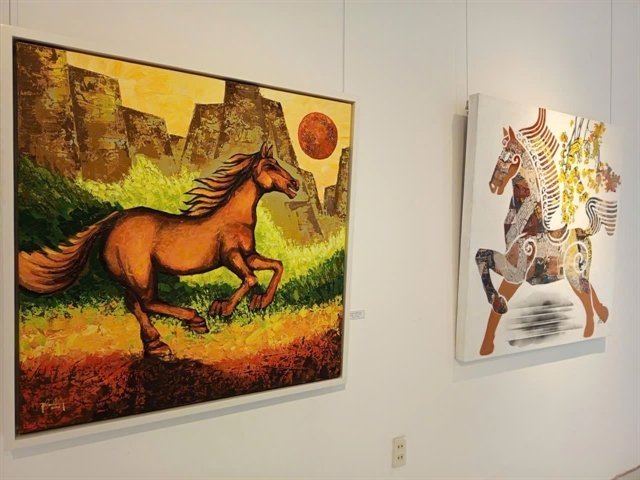 Society
Society

It has been eight years since Ly Van Hấp, a retired official, made use of his ancestors’ land and opened a wet market for poor vendors on T1 Street in HCM City’s Tân Phú District.
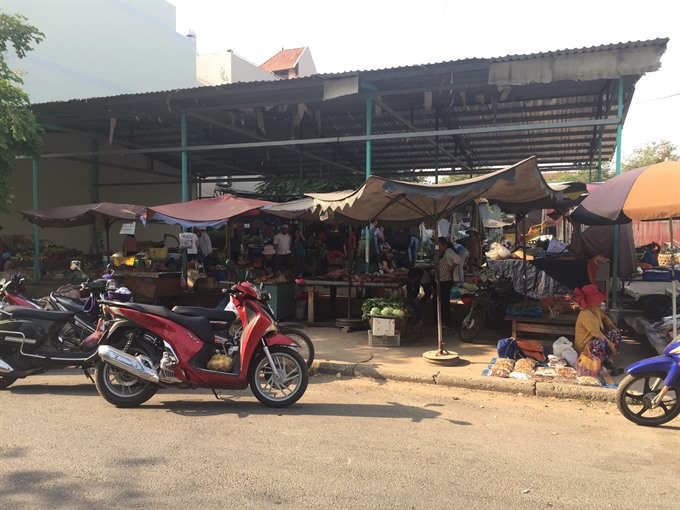 |
| The market opens at 4am every day and is busiest around 7am after parents drop off their children at school. – VNS Photo Văn Châu |
By An Phương
It has been eight years since Lý Văn Hấp, a retired official, made use of his ancestors’ land and opened a wet market for poor vendors on T1 Street in HCM City’s Tân Phú District.
Before the market launched, many vendors in the area had to sell food illegally along May 19 Canal.
Their stalls were often removed by authorities, according to Hấp, who is known by his nickname Năm Hấp.
“People’s lives were miserable then. Since many couldn’t afford to pay the fines or set up new stalls, I thought opening a market would be worth doing,” he said.
Ward authorities also encouraged him to use his ancestors’ land, a decision that he has never regretted.
To be eligible to take part in the market, each vendor pays a VNĐ30,000 (US$1.3) daily fee for electricity, cleaning and garbage.
“Sometimes, I waive the fee for vendors who can’t pay or for those stalls that don’t take up much space,” Năm Hấp said.
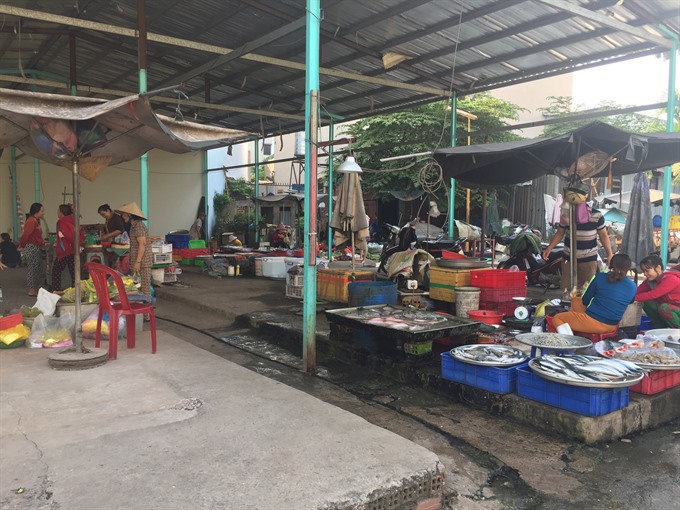 |
| The market opens at 4am every day and is busiest around 7am after parents drop off their children at school. – VNS Photo Văn Châu |
Though his health is not as good as it once was, every morning the 70-year-old walks to the market and cleans the floor.
“Vendors are responsible to clean up their own areas, and I ensure that public spots are free of dirt and trash,” he said.
Though wet markets are typically humid and have walls stained with dirt, Năm Hấp’s market is clean, airy and dry because of high ceilings.
“We couldn’t afford high, quality ceilings the first six years,” he said. “It was only a year and a half year ago that I collected used corrugated sheets from a garage in Bình Chánh District and set up the ceilings.”
Now, vendors no longer need to worry about rain dripping from leaking umbrellas that served as the “roof”.
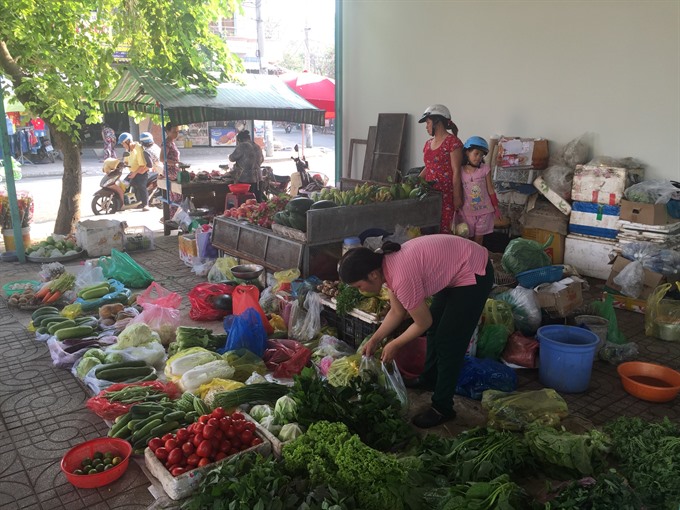 |
| The market opens at 4am every day and is busiest around 7am after parents drop off their children at school. – VNS Photo Văn Châu |
Nguyễn Thị Lùn, Năm Hấp’s 66-year-old wife, said that maintaining the market and helping other people were her husband’s chief passions.
Since both of them have experienced financial hardships, Lùn and Năm Hấp understand how difficult life can be for poor vendors.
Though they feel lucky to have inherited 800sq.m of land from their grandparents, they were happy to share it with other locals.
Phạm Thị Lý, a vendor from the northern province of Nam Định, recalled the hard times of the past when she had to often move to another spot to avoid penalties for encroaching on the sidewalk.
“I’m so thankful to have met Năm Hấp through my friends. Ever since my small business became more stable six years ago, my family has had a higher income,” Lý said.
In fact, some vendors have done so well that they have left the market and bought a house.
Huê, a vendor from the northern province of Bắc Ninh, said the number of vendors in recent years had fallen to around 20 or 30, from 40 to 50 in the past.
“Some vendors were able to buy a house, and others invested their savings in a bigger business and left the market,” Huê said.
Her only complaint today is that some vendors in the area still sell their food illegally on the sidewalk.
“I understand that visitors can find it easier to buy food from these vendors since they don’t have to park their bikes. And they can earn more money on the sidewalk, so I don’t have the right to ask them to join us,” Năm Hấp said.
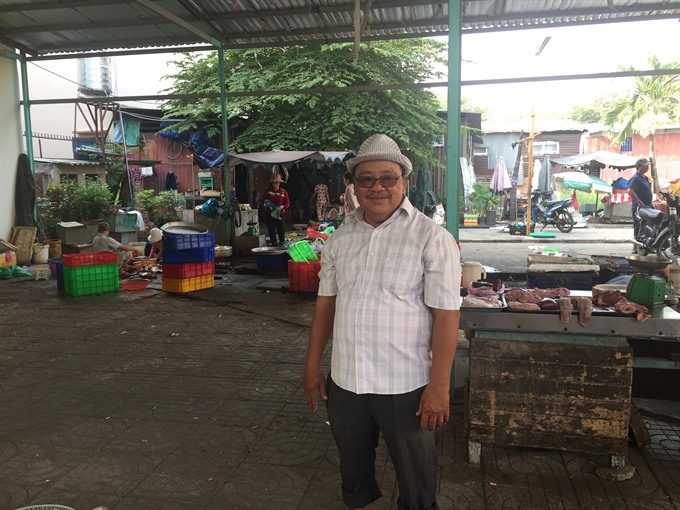 |
| Năm Hấp, a retired official, opened a wet market for poor vendors on 800 square metres of his own land eight years ago. – VNS Photo Văn Châu |
“In the past, there were rumours at times that I launched the market for money,” he added. But Năm Hấp earns only enough to run the market smoothly, while the remaining revenue goes to charity.
“Every year, I organise a holiday trip not only for my family and friends but also for the vendors,” he said. “We travel to neighbouring cities like Vũng Tàu or provinces in the Mekong Delta.”
For those who cannot go, he throws a party in the city.
Besides offering a more stable life to vendors, Năm Hấp is proud that there have been fewer accidents between vendors and pedestrians or motorists since the sidewalks are now free of vendors.
He isn’t sure about the future of the market, but plans to maintain it as long as the vendors want it.
“Initially, my family was not fully supportive because they were afraid we couldn’t take our land back,” he said.
“But years have passed and they’ve all agreed that helping other people while we can is the most important thing.”
Even today, the market has no official name, but everyone calls it Năm Hấp’s Market, reflecting the respect and love they have for their own Prince Charming. — VNS



